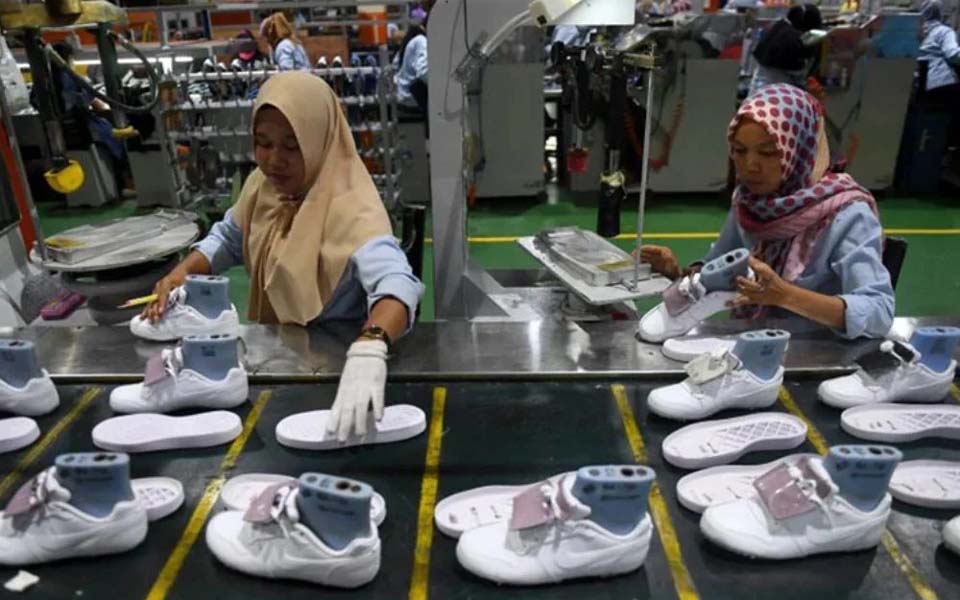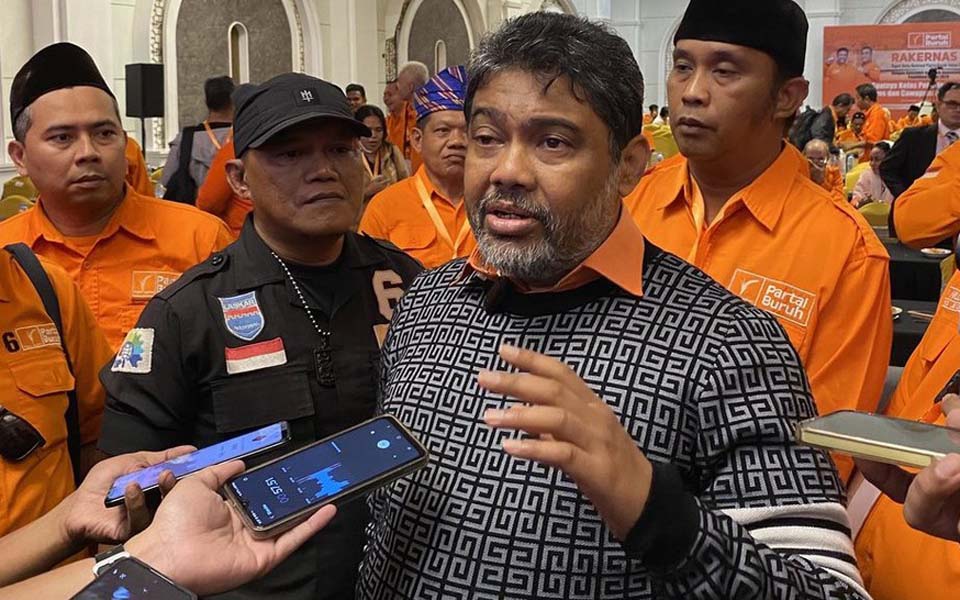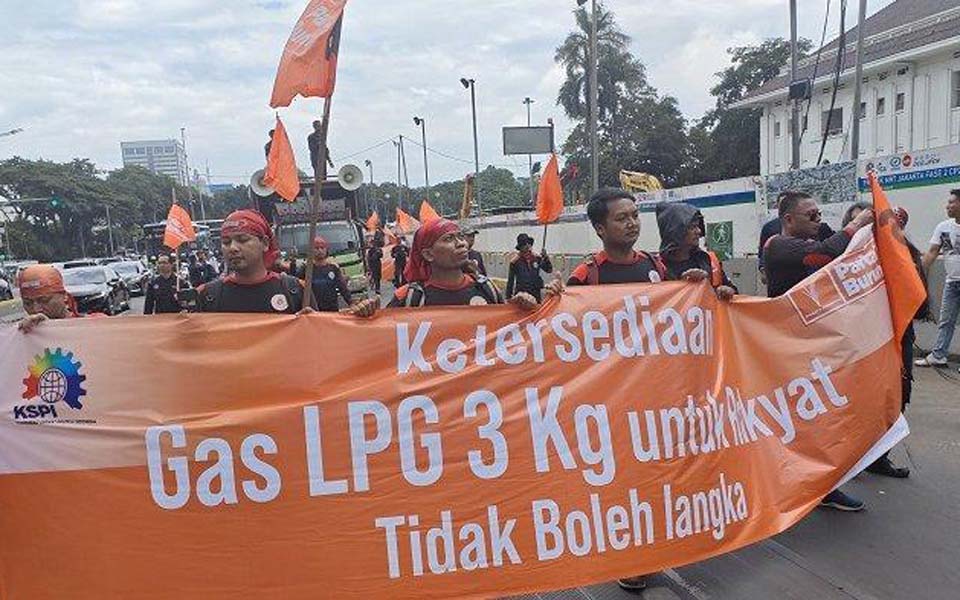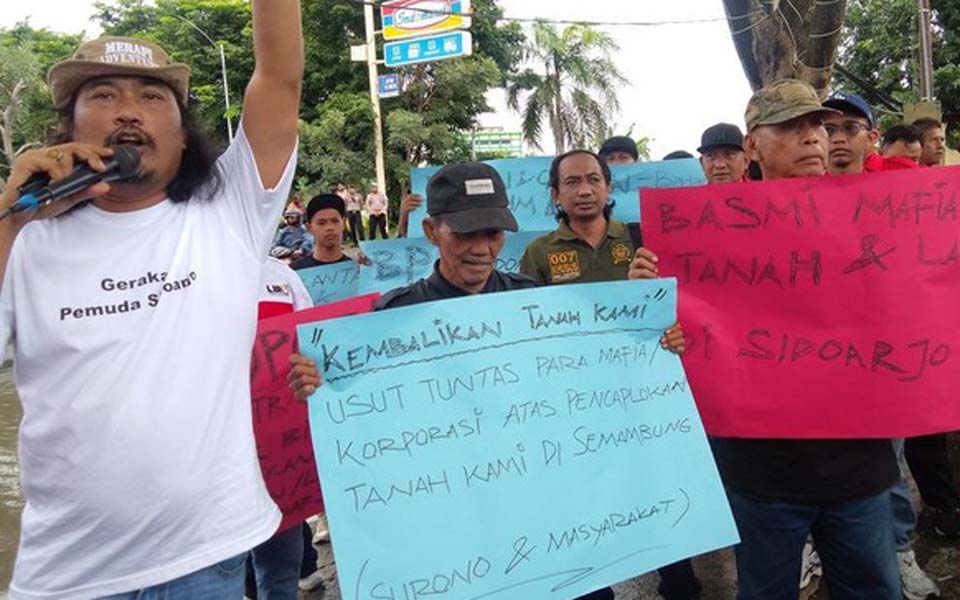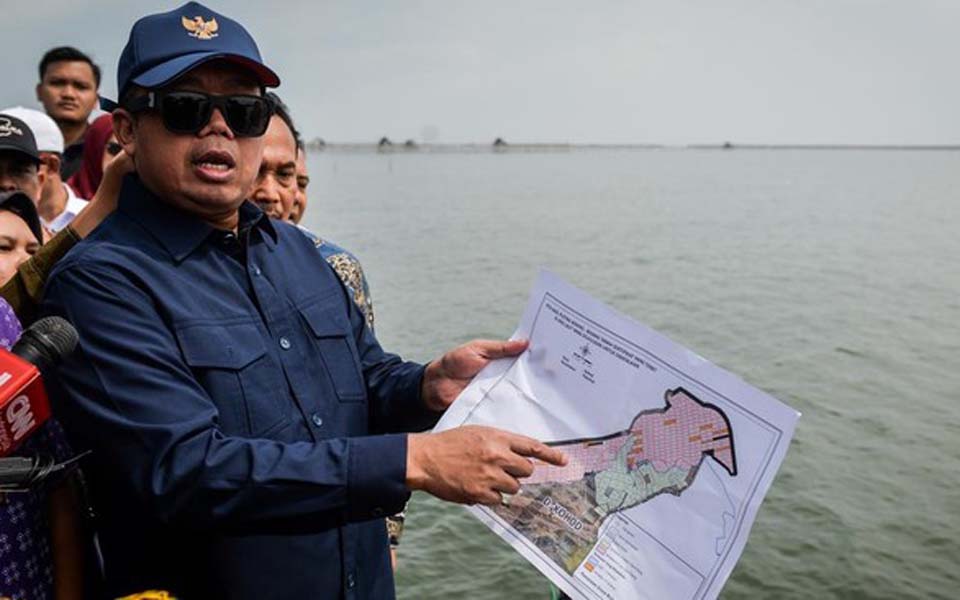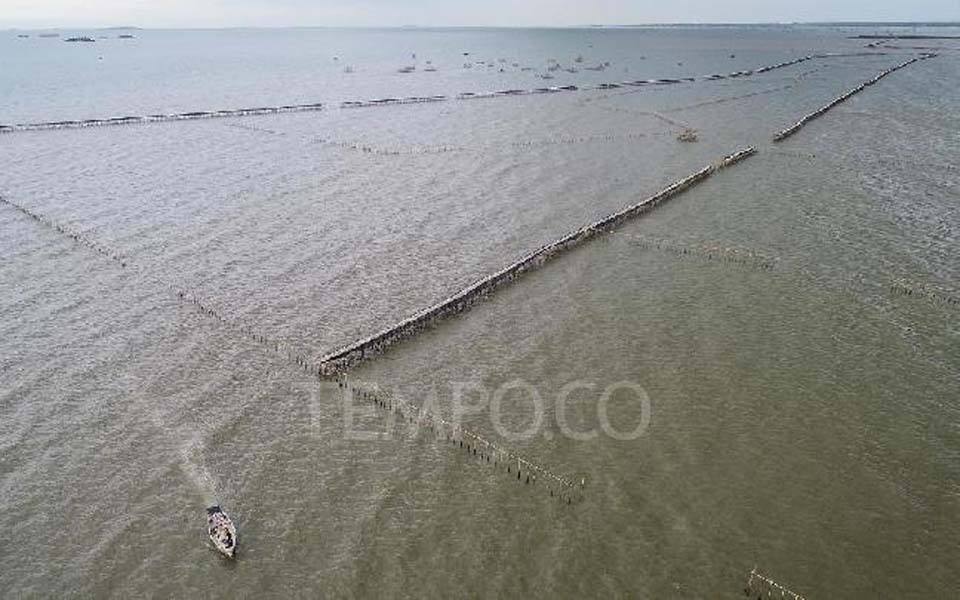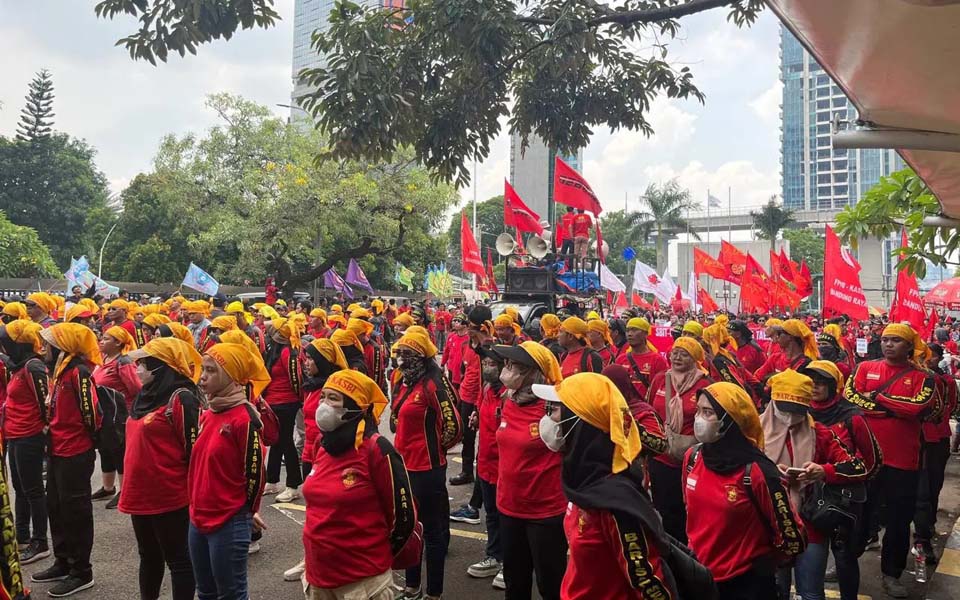Jakarta – The Palm Oil Workers Coalition (KBS) has criticised the government for not involving workers in efforts to resolve the crude palm oil (CPO) dispute between Indonesia and the European Union. Yet the government frequently uses palm oil plantation works as a “shield” in the dispute.
KBS Coordinator Sunaryo Aritonang says that the government has indeed attempted to resolve the palm oil discrimination problem with the European Union through various means ranging from negotiations to threatening to lodge a complaint with the World Trade Organisation (WTO).
This is because CPO is Indonesia’s biggest export commodity and the largest contributor to foreign exchange for the country, so it is important for the development of industry and the national economy.
In addition to this, Indonesia as the largest CPO producer in the world has a large number of workers in the industry. According to the KPS’s data, there were at least 21 million workers in the palm oil plantation sector in 2018, both those who are employed directly and indirectly. Coordinating Minister for Maritime Affairs Luhut Binsar Pandjaitan has often used the size of the work force in the sector as ammunition in negotiations.
“Indonesia’s diplomatic strategy always uses the narrative of small holders (small-scale palm oil famers who supply factories) which according to the government’s envoy, Luhut Binsar, has succeeded in reducing poverty in Indonesia”, said Aritonang when speaking in Cikini, Central Jakarta, on Sunday April 28.
But while the government uses palm oil workers as a weapon against discrimination by the European Union, according to Aritonang, it actually doesn’t care about the fate of workers in the sector.
“Because we feel that up until now the government’s advocacy with the European Union has never involved workers and our rights are not part of this diplomacy”, he revealed.
This, he added, clearly shows that the government is only concerned about the palm oil industry because of the huge contribution it makes to the economy. Yet, according to Aritonang, the government in fact closes it eyes to the right of palm oil workers to take part in resolving the dispute with the European Union.
“Palm oil workers are not seen as a strategic part of Indonesia’s diplomatic strategy”, he asserted.
Aritonang believes that the government also closes it eyes to the problems that frequently befall workers in the palm oil sector. This is reflected in the government continued reluctance to ratify International Labour Organisation’s (ILO) Convention Number 184/2001 on Health and Safety for Plantation Workers.
This can also be seen, he said, from the minimum rights afforded to palm oil workers. First there is no minimum wage for workers in the sector. This means that the wages received by palm oil workers are minimal.
Second, the weak position of trade unions in the face of companies. This happens because of the minimal supervision by the government. “Trade unions in palm oil plantations are muzzled”, he said.
Third, there are no labour safety standards in the sector and social welfare for palm oil workers in minimal. Yet the position of palm oil workers as the smallest part of the industry needs attention and tight supervision by the government.
“We are calling on the government to provide protection to palm oil workers. Then, we are demanding that the government involve us in the European Union discrimination issue”, he said in conclusion.
The alleged discrimination over palm oil by the European Union began when the European Commission issued a draft policy titled Delegated Regulation Supplementing Directive of the EU Renewable Energy Directive II which was submitted to the European Commission on March 13. In the draft regulation, the European Commission decided to classify CPO as an unsustainable and high risk commodity.
Coordinating Minister for Economic Affairs, Darmin Nasution, believes that the draft policy is simply a “trick” by the European Union to block CPO exports from Indonesia to the Blue Continent. Its aim is so that the vegetable oil industry in Europe does not need to be bothered with competing with CPO. (uli/mik)
[Translated by James Balowski. The original title of the article was “Buruh Sawit Kritik Tak Ikut Penyelesaian Kebijakan Eropa”.]







